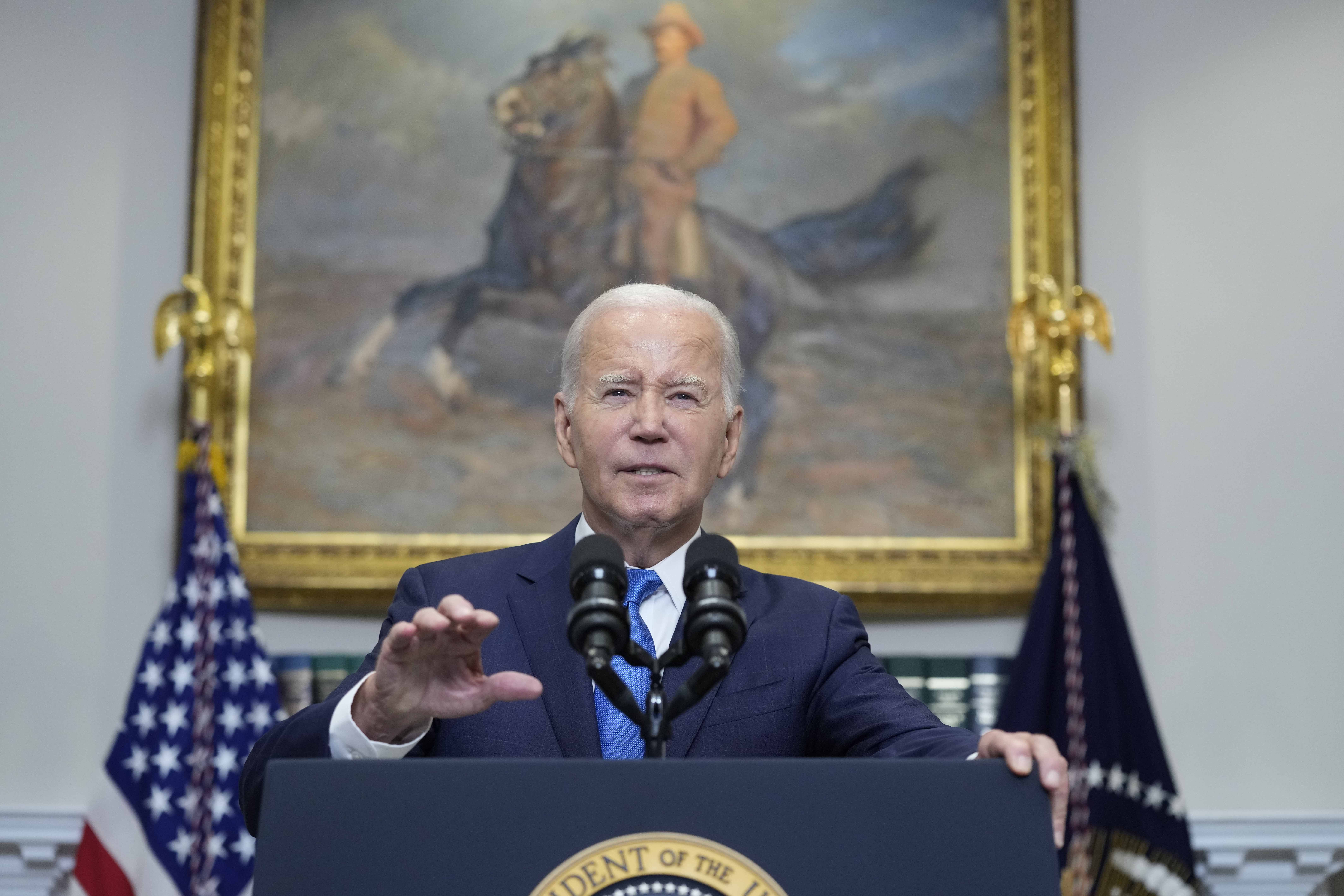
President Joe Biden on Friday sympathized with striking auto workers but stopped short of endorsing the walkout that’s placed him in a political and economic crunch.
“Let’s be clear, no one wants a strike. I’ll say it again. No one wants a strike. But I respect workers’ right to use their options under the collective bargaining system. And I understand the workers’ frustration,” Biden said from White House Roosevelt Room.
“Over generations auto workers sacrificed so much to keep the industry alive and strong, especially in the economic crisis and the pandemic. Workers deserve a fair share of the benefits they helped create for an enterprise,” the president continued, noting that their employers “should go further to ensure that record corporate profits translate into record contracts.”
The United Auto Workers’ decision to strike early Friday at three plants across the so-called Big Three car manufacturers — Ford, General Motors and Stellantis — forces the president to walk a delicate political tightrope. As the self-declared “most pro-union president” in history, the strike not only complicates his labor credentials but could also threaten the implementation of his green industrial agenda and broader economic plan as he heads into a fraught election year.
Biden announced he was deploying two members of his team, acting Secretary of Labor Julie Su and senior economic adviser Gene Sperling, to Detroit to “offer their full support” in contract negotiations. The president urged both sides to return to the negotiating table to “forge a win-win agreement.”
For now, the strike is limited in scale, sparing the country immediate major economic consequences. But the walkout adds increasing pressure on the president to work with both sides to reach a deal before 150,000 union members across several other states take similar action.
The president’s role in negotiations is tricky: If workers see Biden’s participation as anything other than support for their position, he could lose the union’s backing in 2024 — an endorsement his leading opponent, former President Donald Trump, is jockeying for.

 1 year ago
1 year ago








 English (US)
English (US)